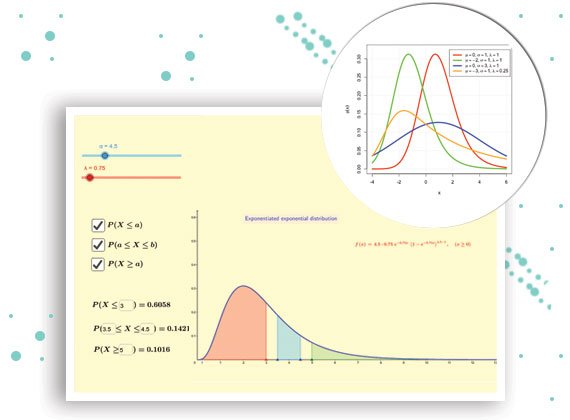The exponential distribution is the probability distribution, which describes the time between events. There lies a strong relationship between the Exponential distribution and Poisson distribution. If the Poisson distribution says the number of births at a given time period, in the exponential distribution, the time between every birth is modeled. Availing of BookMyEssay help for assignment on Exponential distributions can assist you secure top grades.
Uses of Exponential Distributions
Exponential Distributions are used mostly to test product reliability. This is a vital distribution to build constant Markov chains. It models waiting times. It can help you in answering questions such as the “How long shall the transmission in act will remain before breaking? When you assume the answer to the above question as unknown, the elapsed time is the random variable as long as the events happen independently and continuously at a fixed rate. The multiple uses are discussed in our Exponential Distributions assignment help in Australia.
Exponential Distribution can help to decide the time elapsed between two events. This is used in a wide range of applications including queuing theory, reliability theory, physics, and others. Many fields are modeled by this distribution such as the following:
- It can help to find the distance between DNS strand mutations
- It helps to find out the height of various molecules in gas at a stable pressure and temperature and in a gravitational field
- It can calculate the time till a radioactive particle is decayed
- It helps to calculate the monthly as well as yearly highest values of river outflow and rainfall volumes.
The Formula of Exponential Distribution
Many formulas are defined for the exponential distribution based on the features. The pdf or probability density formula of the exponential distribution is
F(x;λ) = λe– λx when x ≥ 0,
F(x;λ) = 0 when x < 0.
- λ is a mean time between the events and known as a rate parameter
- e is a natural number
- x is a random variable known as the exponential random variable
As stated by our Exponential Distributions homework writers, it demonstrates the infinite divisibility that a probability distribution of a sum of the arbitrary number of identically distributed and independent random variables.
The cumulative distribution function of the exponential distribution is
F(x;λ) = 1-e– λx : x ≥ 0,
F(x;λ) = 0 : x < 0.
The expected value or distributed mean of the exponential random variable x along with λ is
E[X] = 1/ λ
The variance of an exponential random variable is given by
Var[X] = 1/λ2
Thus, the standard deviation equals the mean.
The moment generating function of the exponential random variable for the time interval t<λ
MX(t) = λ/λ-t
The sum of the exponential random variable of the exponential distribution is defined as





 3 Bellbridge Dr, Hoppers Crossing, Melbourne VIC 3029
3 Bellbridge Dr, Hoppers Crossing, Melbourne VIC 3029

